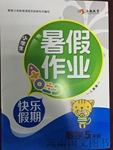题目内容
— Do you often ___________ Lucy?
—Yes. She writes to me once a week.
A. hear from B. think of
C. learn from
练习册系列答案
 永乾教育寒假作业快乐假期延边人民出版社系列答案
永乾教育寒假作业快乐假期延边人民出版社系列答案
相关题目
题目内容
— Do you often ___________ Lucy?
—Yes. She writes to me once a week.
A. hear from B. think of
C. learn from
 永乾教育寒假作业快乐假期延边人民出版社系列答案
永乾教育寒假作业快乐假期延边人民出版社系列答案